activist lawyer
description: lawyer advocating for social, economic, or political change
26 results
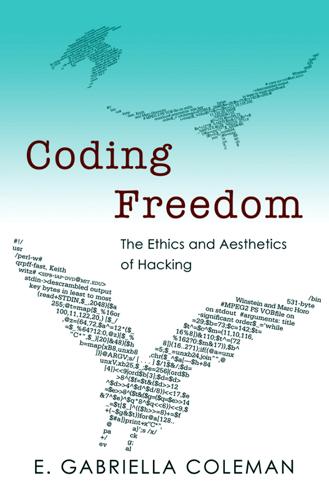
Coding Freedom: The Ethics and Aesthetics of Hacking
by
E. Gabriella Coleman
Published 25 Nov 2012
Programmers could write and publish strong encryption on the grounds that software was speech. F/OSS advocates, seeing the DeCSS case as a similar situation, hoped that the courts just might declare DeCSS worthy of First Amendment protection. Consider the first message posted on dvd-discuss—a mailing list that would soon attract a multitude of programmers, F/OSS developers, and activist lawyers to discuss every imaginable detail concerning the DeCSS cases: I see the DVD cases as the natural complement to Bernstein’s case. Just as free speech protects the right to communicate results about encryption, so it protects the right to discuss the technicalities of decryption. In this case as well as Bernstein’s, the government’s policy is to promote insecurity to achieve security.
…
Even though Sklyarov was in no fashion part of or identified with the world of F/OSS development, local F/OSS developers were behind a slew of protest activities, including a protest at Adobe’s San Jose headquarters, a candlelight vigil at the San Jose public library, and a march held after Linux World on August 29, 2001, that ended up at the federal prosecutor’s office. At a fund-raiser that followed the march to the prosecutor’s office, Stallman, the founder of the FSF, and Lessig, the superstar activist-lawyer, gave impassioned speeches. Sklyarov, in a brief appearance, thanked the audience for their support. The mood was electric in an otherwise-cool San Francisco warehouse loft. Lessig, who had recently published his Code and Other Laws of Cyberspace, a book that was changing the way F/OSS developers understood the politics of technology, fired up the already-animated crowd with charged declarations during his speech: Now this is America, right?
…
By means of lively protests and prolific discussions, almost continuously between 1999 and 2003, hackers as well as new publics debated the connection between source code and speech. This link became a staple of free software moral philosophy, and has helped add clarity in the competition between two different legal regimes (speech versus intellectual property) for the protection of knowledge and digital artifacts. Now other actors, such as activist lawyers, are consolidating new projects and bodies of legal work that challenge the shape along with the direction of intellectual property law. To be sure, the idea of free speech has never held a single meaning across the societies that have valued, instantiated, or debated it. Yet it has come to be seen as indispensable for a healthy democracy, a free press, individual self-development, and academic integrity.
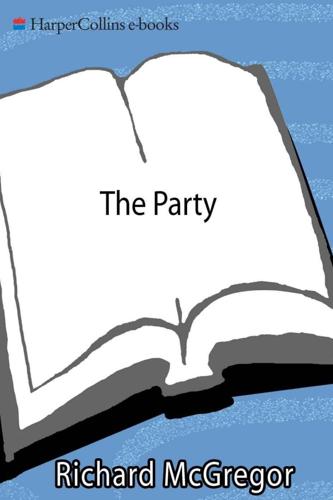
The Party: The Secret World of China's Communist Rulers
by
Richard McGregor
Published 8 Jun 2010
Tens of thousands of copies of the business magazine Caijing containing a lengthy article about the case were hauled off news-stands throughout the country. It was the first time an entire edition of the pioneering publication had been suppressed. A few weeks later, the Shanghai authorities took further retaliatory action by arresting Zheng Enchong, the activist lawyer, for leaking state secrets, a charge often wheeled out when the authorities want to make a political example of critics, and sentenced him to three years in jail. For the moment, Beijing withdrew from the Zhou Zhengyi case, leaving it to Shanghai to handle. In doing so, it allowed the two rival political camps to step back from the brink of a damaging split in the top leadership.
…
Around the same time, I had been doing some sleuthing of my own. Before leaving China, I wanted to track down Li Fanping, the lawyer who had taken on the cases of the children in the Sanlu milk scandal, to check on the progress of the lawsuits. But Li had gone to ground. While he had been working on the Sanlu case, Li and a bunch of like-minded activist lawyers had taken on some other sensitive causes. They had sought to defend Falun Gong believers and to provide legal representation for ethnic Chinese and Tibetans accused of fomenting unrest during the riots in Lhasa and beyond in 2008, infuriating the authorities. A month before the Party’s party, a group of the Sanlu parents were warned off when they tried to travel to Beijing to mark their own anniversary, one year since their children’s poisoning.
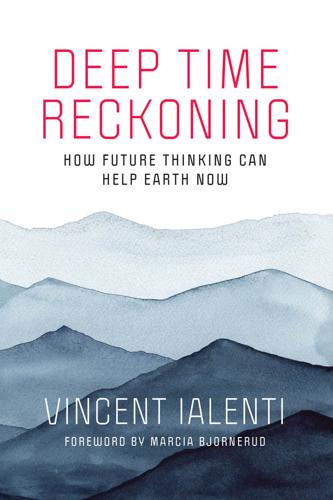
Deep Time Reckoning: How Future Thinking Can Help Earth Now
by
Vincent Ialenti
Published 22 Sep 2020
We discussed life in Finland, what captured their imaginations at work, how they organized their time, and how their time was organized for them.17 I picked their brains about how they grappled with futures near and deep. I chatted with physicists, engineers, geologists, mathematicians, hydrologists, artists, computer modelers, industry lobbyists, managers, chemists, finance professionals, activists, lawyers, politicians, academics, and others. I ended up recording 121 interviews with people who worked on or had something special to say about Finland’s nuclear energy and waste initiatives. My fieldwork informants worked at Finland’s nuclear regulatory authority STUK, the nuclear waste company Posiva, the Technical Research Center of Finland (VTT), the Geological Survey of Finland (GTK), engineering consultancy Saanio & Riekkola Oy, lobbying association Confederation for Finnish Industries, clay technologies consulting firm B+Tech, Finland’s Parliament (Eduskunta), Aalto University, Greenpeace, lobbying association Finnish Energy Industries, Friends of the Earth, power companies Fennovoima, TVO, and Fortum, the general public, and elsewhere.18 Some worked on the Finnish Research Programme on Nuclear Waste Management, which oversaw the country’s nuclear waste knowledge base.
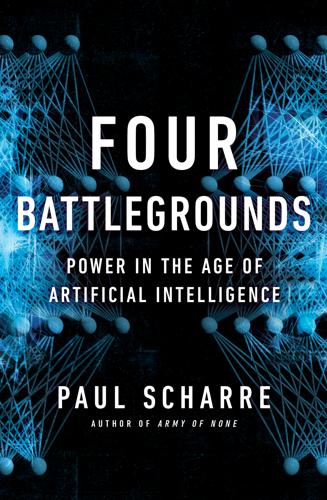
Four Battlegrounds
by
Paul Scharre
Published 18 Jan 2023
Xi aims to complete China’s growth, building a “moderately prosperous society in all respects” by 2021 on the way to a fully modernized society by 2049, the 100th anniversary of the People’s Republic of China. China’s growth rate has been more modest in recent years, but was still a brisk 6 percent in 2019 before the novel coronavirus pandemic. But for some, Xi’s Chinese dream is a nightmare. Xi has increased repression of human rights activists, lawyers, political dissidents, and journalists. Arbitrary arrest, detention, and torture are common tools of the Chinese party-state for maintaining political control. The paradox of China’s “opening up” is ever-present on the streets of Beijing. Storefronts advertise Western brands like Apple and KFC alongside surveillance cameras on every block.
…
Thanks to CNAS research associate Ainikki Riikonen for background research. 87fully modernized society by 2049: Robert Lawrence Kuhn, “Xi Jinping’s Chinese Dream,” New York Times, June 4, 2013, https://www.nytimes.com/2013/06/05/opinion/global/xi-jinpings-chinese-dream.html. 876 percent in 2019: “GDP Growth (Annual %)—China,” World Bank, 2020, https://data.worldbank.org/indicator/NY.GDP.MKTP.KD.ZG?locations=CN. 87repression of human rights activists, lawyers, political dissidents, and journalists: “China: Events of 2018,” Human Rights Watch, 2018, https://www.hrw.org/world-report/2019/country-chapters/china-and-tibet; “Human Rights Activism in Post-Tiananmen China,” Human Rights Watch, May 30, 2019, https://www.hrw.org/news/2019/05/30/human-rights-activism-post-tiananmen-china. 87Golden Shield Project: Breaking Through the “Golden Shield” (Open Society Institute, 2009), https://www.opensocietyfoundations.org/publications/breaking-through-golden-shield. 87Skynet: “‘天网’网什么” [“Skynet” Nets What], people.cn, n.d., http://paper.people.com.cn/rmzk/html/2017-11/20/content_1825998.htm (page discontinued), https://web.archive.org/web/20190303234110/http://paper.people.com.cn/rmzk/html/2017-11/20/content_1825998.htm; Xinmei Shen, “‘Skynet’, China’s Massive Video Surveillance Network,” South China Morning Post, October 4, 2018, https://www.scmp.com/abacus/who-what/what/article/3028246/skynet-chinas-massive-video-surveillance-network; Zhang Zihan, “Beijing’s Guardian Angels?”
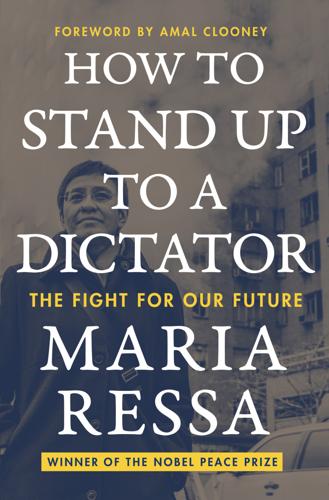
How to Stand Up to a Dictator
by
Maria Ressa
Published 19 Oct 2022
It was cold and windy the morning of the TrialWatch launch, which was being held at Columbia Law School. I went to the back row of the auditorium and set up my tripod and camera. I was going to livestream the event on Rappler. When I took the stage, I looked out over a who’s who of human rights activists, lawyers, tech types, and journalists. George and Amal Clooney were in the front row. The panel discussed how the law had been weaponized against journalists all around the world and why it was so important to have international court observers. There was no better example than the three of us onstage: to my right was the Canadian Egyptian Mohamed Fahmy, jailed in Egypt for 437 days;9 on my left was the Iranian American Jason Rezaian, jailed in Iran for 544 days.10 Listening to them, I realized two things: one, I had not yet been jailed beyond the one night to scare me, so it was probably going to get worse, and two, having a dual identity such as Filipino American might help when it did.
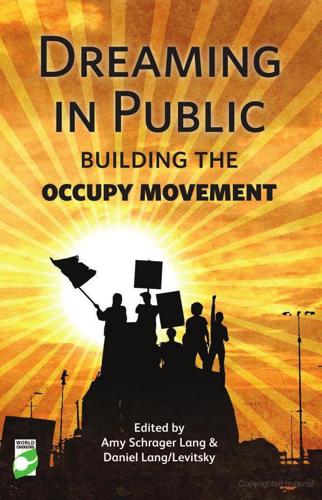
Dreaming in Public: Building the Occupy Movement
by
Amy Lang
and
Daniel Lang/levitsky
Published 11 Jun 2012
If not the Soviet Union, then surely the intrepid guerrillas of Latin America, Algerian women with their battle cry, the Chinese in seeking to pass on the spirit of revolution to a new generation, even the students of Paris, had found the Answers. Painfully, we discovered that was not the case. We are all in this together. Staughton Lynd Longtime US activist, lawyer, historian and author. THE BEGINNING IS NEAR Foreword All of the writing and images we have included in this collection were created and circulated by their authors as part of their active participation in Occupy/Decolonize. Some have been read widely and are understood as key contributions to the movement’s evolution – Manissa McCleave Maharawal’s ‘So Real It Hurts’, for example.
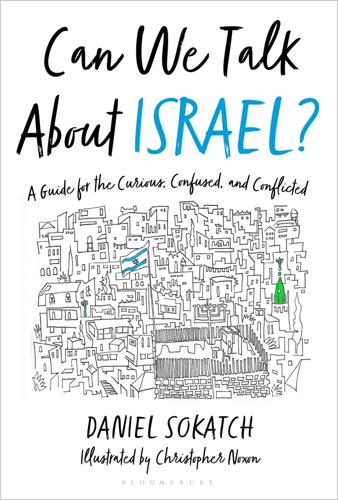
Can We Talk About Israel?: A Guide for the Curious, Confused, and Conflicted
by
Daniel Sokatch
Published 18 Oct 2021
As Mahmoud Darwish, the national Palestinian poet, said, I have passion for life, and everything on this land is worth living for. We each have a chance to write our own history. In mine, I hope to tell of the changes I helped bring about in my country.* MUTASIM ALI, 34—Sudanese Political Asylum Seeker to Israel, Immigrant Rights Activist, Lawyer, and Refugee I was raised by a loving father and mother in Darfur, a region of Sudan. From the time I was five years old, my parents told me about the importance of education and community work. Our society is broken, they said, and it has to be fixed. When I turned six, my parents began sending me away to stay with relatives and family members and sometimes even with strangers.
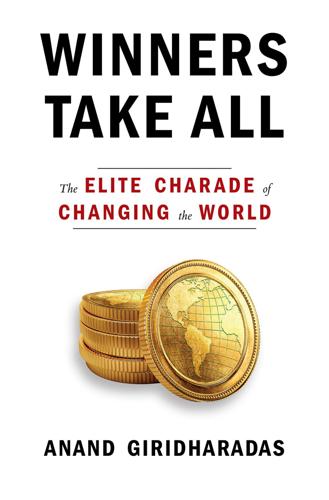
Winners Take All: The Elite Charade of Changing the World
by
Anand Giridharadas
Published 27 Aug 2018
“Welcome to our sunrise service here at CGI,” the panel moderator, Melanne Verveer, said in opening. Her panel was, she said, emblematic of what lay ahead that day, for it brought together diverse stakeholders from multiple perspectives on the topic of women’s equality. The diverse stakeholders turned out to be three corporate executives and one UN man. There were no feminist thinkers, activists, lawyers, elected leaders, labor organizers, or other varietals of women-savers on the panel. Serious feminists might have found this slate of experts problematic, but it was not, by CGI’s standards, a poorly formed panel. On the contrary, much like the panel on globalism and its haters, it was a panel that could be counted on to provide the right amount of stimulation while worrying absolutely no one.
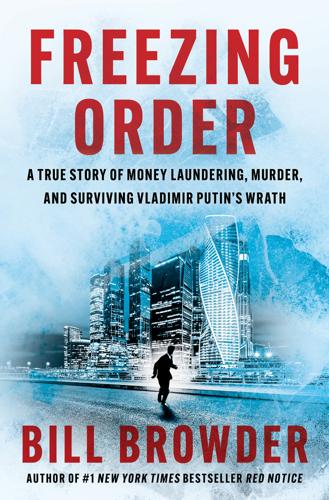
Freezing Order: A True Story of Money Laundering, Murder, and Surviving Vladimir Putin's Wrath
by
Bill Browder
Published 11 Apr 2022
. (© HERMITAGE) Links and Legal Documents Russian Untouchables, Episode 1, Artem Kuznetsov, June 2010 tinyurl.com/2p8pv6kk Russian Untouchables, Episode 2, Pavel Karpov, July 2010 tinyurl.com/46m49j39 Russian Untouchables, Episode 3, Olga Stepanova, April 2011 tinyurl.com/2wsuxysy Russian Untouchables, Episode 4, The Magnitsky Files (Dmitry Klyuev), June 2012 tinyurl.com/55jxab9b Hermitage complaint against Olga Stepanova and Vladlen Stepanov, Switzerland, January 2011 tinyurl.com/3768vdeh Video clip of Dmitry Klyuev at the OSCE Parliamentary Assembly, Monaco, July 2012 tinyurl.com/2wkba6jf “Following the Magnitsky Money,” OCCRP, August 2012 tinyurl.com/7uh25mt3 Hermitage complaint against Prevezon and Denis Katsyv, New York, December 2012 tinyurl.com/5dwb434t SDNY complaint against Prevezon, September 2013 tinyurl.com/49tn3kt7 Memorandum of Law to disqualify John Moscow and BakerHostetler from the Prevezon case, September 2014 tinyurl.com/mv968tfn Natalia Veselnitskaya Facebook post, October 2014 (English translation) tinyurl.com/4xmdbac4 Confidential letter given to US congressman Dana Rohrabacher by Russian deputy general prosecutor Viktor Grin, April 2016 tinyurl.com/2njpas6b US indictment of 12 GRU officers from Special Counsel headed by Robert Mueller, July 2018 tinyurl.com/yzbz5a98 Paul Manafort’s notes from the Trump Tower meeting, July 2016 tinyurl.com/4pz84bd7 US indictment of Natalia Veselnitskaya, January 2019 tinyurl.com/sdd94u8s List of Russians connected to the Magnitsky case sanctioned by the US Government tinyurl.com/2juae2c2 Acknowledgments This book portrays only a small fraction of the work that has gone into getting 34 countries to pass Magnitsky Acts, as well as convincing 16 jurisdictions to open criminal money laundering investigations connected to the $230 million fraud that Sergei exposed and was killed over. (If I were to tell the whole story, the book would probably be 10 times longer and likely unreadable.) Accomplishing all of this has taken an army of lawmakers, journalists, activists, lawyers, NGOs, investigators, prosecutors, editors, and friends, among many others. I’m going to do my best to list them below but will exclude a few groups intentionally. For obvious reasons, I’m not going to mention anyone who has provided confidential assistance. People like whistleblowers, sources, and certain friends.
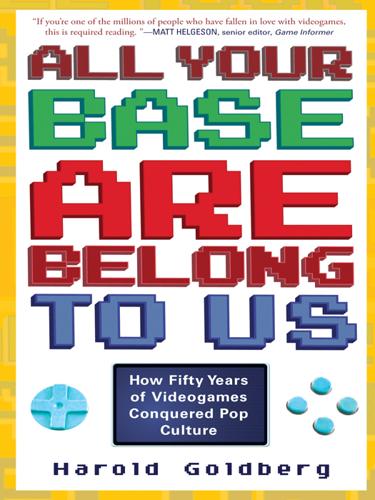
All Your Base Are Belong to Us: How Fifty Years of Video Games Conquered Pop Culture
by
Harold Goldberg
Published 5 Apr 2011
For a while, Australia banned the game due to its violent and sexual content. Politicians like Senator Joe Lieberman railed against it, saying the violence was horrendous and that the Housers “have a responsibility not to do it if we want to raise the next generation of our sons to treat women with respect.” After seeing GTA III, Jack Thompson, a conservative activist lawyer, made it his crusade to ban the spread of violent videogames. The Housers didn’t react publicly, but privately they shook their heads. They had made the game for adults. Through the Entertainment Software Ratings Board, they had labeled it with a Mature rating, hopefully ensuring that no one under seventeen would purchase the game.
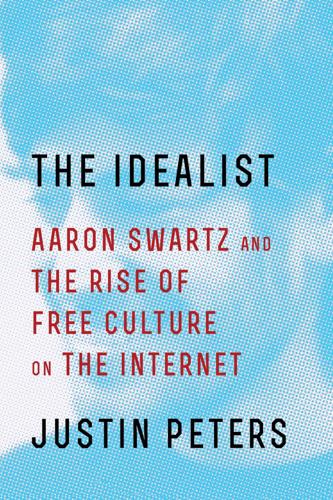
The Idealist: Aaron Swartz and the Rise of Free Culture on the Internet
by
Justin Peters
Published 11 Feb 2013
In his working paper, Swartz described his new plan for the future of activism. Rather than form a political action group focused on one single issue or tactic, Swartz proposed that organizers should assemble groups of people supremely competent in certain relevant disciplines—investigators, activists, lawyers, lobbyists, policy experts, political strategists, journalists, and publicists—who could combine their efforts and advocate effectively for any issue, big or small. Swartz envisioned a flexible, intelligent, multifaceted task force that would learn from its mistakes and refine its tactics accordingly: a team of specialists that, cumulatively, worked as generalists.
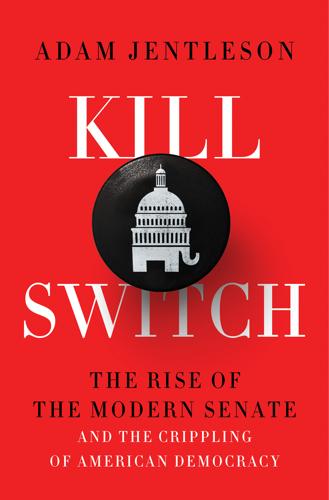
Kill Switch: The Rise of the Modern Senate and the Crippling of American Democracy
by
Adam Jentleson
Published 12 Jan 2021
Before Law led Crossroads GPS, he spent a decade fighting “the campaign finance wars,” as he put it, as a top aide to McConnell.58 But McConnell’s contribution goes much deeper. Without the Citizens United decision, these groups would not be nearly as powerful today. The plaintiff in that case, the group Citizens United, did not come up with the idea for it on their own. Instead, the idea came from the prominent Federalist Society member and activist lawyer James Bopp Jr., who drafted the lawsuit for them. The case “was really Jim’s brainchild,” according to Richard Hasen, an election law expert at Loyola Law School.59 The PBS series Frontline described Bopp as the “intellectual architect behind the landmark Citizens United case.”60 For more than a decade, Bopp had been honing his legal theories as the lead counsel of the James Madison Center for Free Speech, which had been founded in 1997 during the Senate debate over McCain-Feingold.
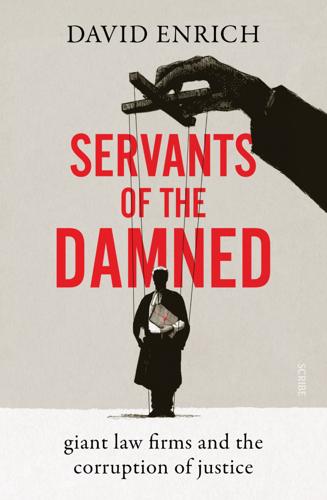
Servants of the Damned: Giant Law Firms and the Corruption of Justice
by
David Enrich
Published 5 Oct 2022
Indiana’s Republican secretary of state certified McIntyre as the winner. Congress, however, was controlled by Democrats, and they refused to seat him, citing unspecified voting irregularities. Instead, the House leadership flew a three-member committee—two Democrats and one Republican—to Indiana to oversee a recount. Both parties rushed resources—money, activists, lawyers—to southwest Indiana. One of them was a young attorney named Ben Ginsberg. Ginsberg had grown up in Philadelphia, raised by liberal parents. He was liberal, too, at first. By the time he was in college, though, his views were evolving. He was turned off by the Great Society programs of the 1960s, and his politics drifted to the right.

My Glorious Defeats: Hacktivist, Narcissist, Anonymous: A Memoir
by
Barrett Brown
Published 8 Jul 2024
Mercedes was a teenage girl from Las Vegas whose entire family had been herded into their living room and held at gunpoint while federal agents ransacked their home on the chance that she may have been one of thousands of people who loaded a corporate website too many times. Tap, tap, tap. It was reasonably satisfying to watch Penley invoke the New York activist lawyers, who had thereafter begun to multiply and call forth their pro bono brethren from California and Oregon and whatnot until my Gmail in-box had fattened with demands for wrongs to right. Things took an irritating turn when it came to light that Cohen and the National Lawyers Guild folks hated each other.
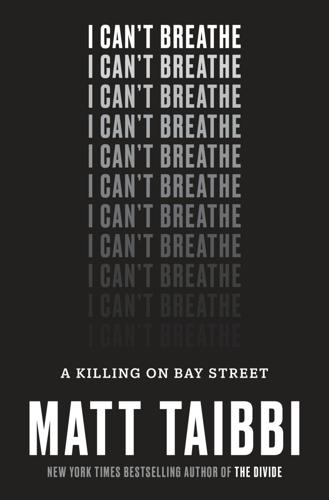
I Can't Breathe
by
Matt Taibbi
Published 23 Oct 2017
They were the pros from Dover, and they acted like it. Aronin is young, fit, has slick hair, and looks like an extra from a stockbroker-chic movie like Wall Street or Boiler Room. Perry meanwhile has flowing silver hair that’s thin on top, long in back, and kept in a faintly hippieish style. His look hints a little at famed countercultural activist lawyers like Bill Kunstler and J. Tony Serra. Their client by then was famous enough that he was recognizable from a distance. Dressed in a trademark black ski hat and a black jacket, the lean, withdrawn-looking Orta, now twenty-four, sat glumly in the back of the courtroom. He looked like he expected an anvil to fall on his head at any moment.
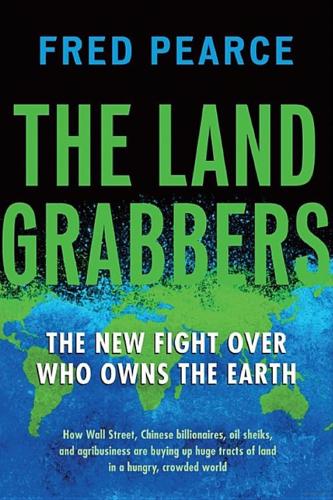
The Land Grabbers: The New Fight Over Who Owns the Earth
by
Fred Pearce
Published 28 May 2012
If all three foreign projects proceed as planned, a total of one and a half million acres of Liberia could be under oil palm before long, more than 6 percent of the country. But Sime Darby in particular hit trouble in 2011, with locals refusing to give up land and complaining that the company was engaged in illegal clearing. Alfred Brownell, the activist lawyer, had become involved. In October, an appeal to the industry watchdog, the Roundtable on Sustainable Palm Oil, brought a promise that the company would “cease their operations immediately” on 10,000 acres claimed by the villagers and “open bilateral discussions.” Victory. Before I left Palm Bay, and after walking around the nursery, I asked an idle question about where the seedlings came from.
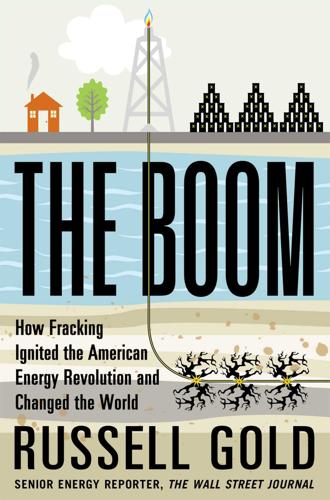
The Boom: How Fracking Ignited the American Energy Revolution and Changed the World
by
Russell Gold
Published 7 Apr 2014
When Brune took over the Sierra Club, his first major initiative presented to the board was to recommend snubbing the group’s largest funder, at a time when the group was struggling for money. At a weekend retreat of the board of directors in August 2010, he broke the news of McClendon’s donations to the all-volunteer board, a group of activists, lawyers, and scientists. In addition to informing them about the $26 million already received, he also suggested that they turn down another $30 million in promised pledges. (The donation amounted to about 12 percent of the Sierra Club’s contributions between 2008 and 2010.) “It was a shocking time,” board member Jeremy Doochin recalled.
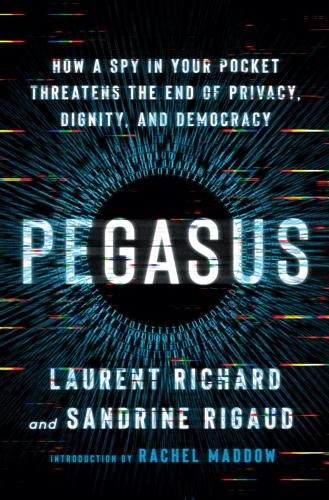
Pegasus: How a Spy in Your Pocket Threatens the End of Privacy, Dignity, and Democracy
by
Laurent Richard
and
Sandrine Rigaud
Published 17 Jan 2023
“NSO has always maintained the line: our clients are contractually bound to only use this technology against terrorists and criminals,” Paul said. “What we found is that on a pretty sort of widespread basis across the world, these governments have been using a technology to spy on or target journalists, activists, lawyers, human rights defenders, academics, businesspeople, senior religious figures, politicians up to and including some heads of state. Sort of everyone, really.” Not a major surprise, Snowden responded, but then, “Fifty thousand people. It’s, uh, I just kind of keep repeating that number to myself.
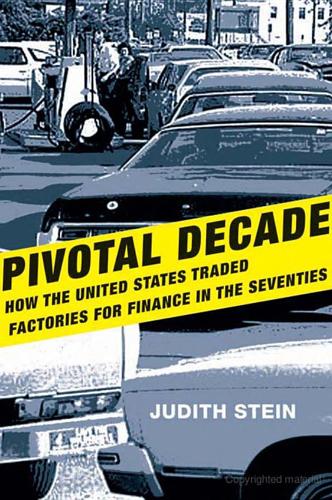
Pivotal Decade: How the United States Traded Factories for Finance in the Seventies
by
Judith Stein
Published 30 Apr 2010
Nader’s principal animus was the corporation.127 Because he believed that corporations dominated government and corrupted labor, he also opposed tripartite modes of governing. Such collaboration would be at the expense of the consumer. Nader’s politics substituted consumers for the traditional working class as agents of change. Nader did not organize consumers. His various public interest groups were not mass organizations but groups of activist lawyers. Nader’s anticorporatism was a mindset, not a political program. In the final analysis, both Kahn and Nader believed that competition would solve all economic problems. With conservatives, they opposed social democratic solutions to U.S. economic woes. The issue was not resolved because everyone understood that, if Carter was not reelected, “this thing is academic.”
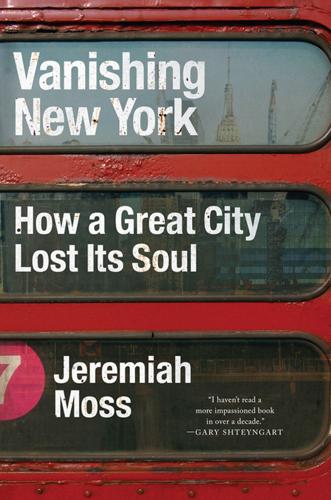
Vanishing New York
by
Jeremiah Moss
Published 19 May 2017
Brooklyn developer Carnegie Management had just converted an old piano factory into the Clock Tower Building, with loft apartments renting for $950 to $1,700, high prices for that part of town. Carnegie’s Isaac Jacobs told the Voice, “This is the new frontier.” In 2005, the City Council approved Bloomberg’s plan to rezone the Port Morris section of the Bronx to increase residential and retail development. Activist lawyers and artists fought for half of all new housing to be low-income, but Amanda Burden “objected successfully that such set-asides would have discouraged development,” according to Joseph Berger in the Times. He quoted Neil Pariser, senior vice president of the South Bronx Overall Economic Development Corporation, as saying, “What you don’t want to do is relegate an area that has finally achieved a place in the market to only the poor.
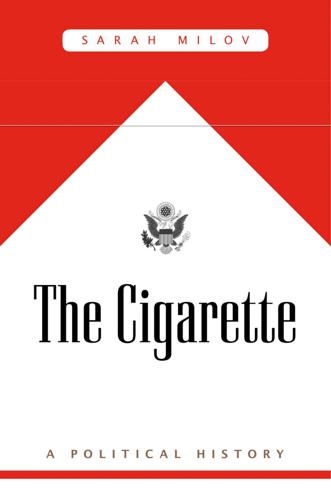
The Cigarette: A Political History
by
Sarah Milov
Published 1 Oct 2019
Posner, “Theories of Economic Regulation,” Bell Journal of Economics and Management Science 5, No. 2 (1974): 335–358. For an overview of the history of the capture thesis, see William J. Novak, “A Revisionist History of Regulatory Capture,” in Preventing Regulatory Capture, Daniel Carpenter and David Moss, eds. (New York: Cambridge, 2013). 23. For a discussion of the way in which young activist lawyers reimagined the judiciary as a site of democratic participation, see Reuel Schiller, “Enlarging the Administrative Polity: Administrative Law and the Changing Definition of Pluralism, 1945–1970,” Vanderbilt Law Review 53, No. 5 (2000): 1389–1453; Schiller, Forging Rivals: Race, Class, Law and the Collapse of Postwar Liberalism (New York: Cambridge University Press, 2015), especially 143–146; Sean Farhang, Litigation State: Public Regulation and Private Lawsuits in the United States (Princeton: Princeton University Press, 2010).
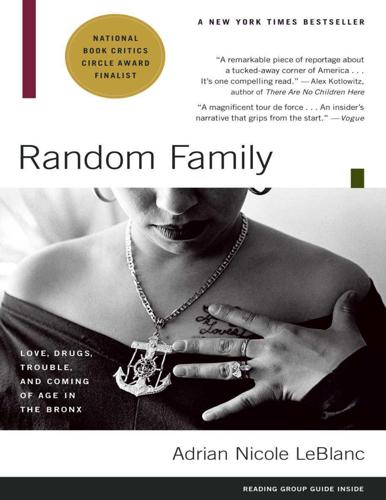
Random Family: Love, Drugs, Trouble, and Coming of Age in the Bro
by
LeBlanc, Adrian Nicole
Published 23 Oct 2012
Over the years, Jessica had maintained her many outside contacts, even those that were fleeting. (Once she’d called a guy she’d met on Fordham Road. He didn’t remember her name, but she refreshed his memory by describing how she’d been dressed.) She called Boy George’s attorney, who placed a call on Cesar’s behalf. She tried the activist lawyer who ran the prison clinic at Yale. The lawyer, also the mother of twins, held a special place in her heart for Jessica. Yale couldn’t help Cesar—they didn’t take New York State criminal cases—but, as it turned out, they could help Jessica. Following the twin boys’ birth, Jessica’s health had continued to deteriorate.
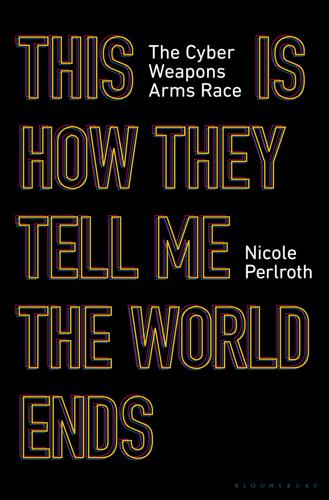
This Is How They Tell Me the World Ends: The Cyberweapons Arms Race
by
Nicole Perlroth
Published 9 Feb 2021
When I contacted a lobbyist for Mexico’s soda industry, they told me, “This is the first we’re hearing of it, and frankly, it scares us too.” NSO told me it would investigate. But rather than cut Mexico off, its spyware only continued to pop up in more disturbing cases still. Almost as soon as I hit publish on the article, my phone started buzzing anew with calls from highly respected Mexican anticorruption activists. Lawyers looking into the mass disappearance of forty-three Mexican students, two of Mexico’s most influential journalists, and an American representing victims of sexual abuse by the Mexican police had all received similar text messages. The spying had even swept up family members, including the teenage son of one of Mexico’s most prominent journalists.
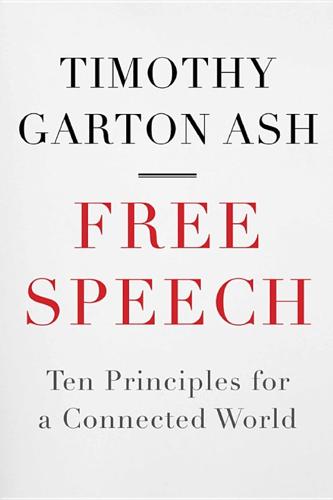
Free Speech: Ten Principles for a Connected World
by
Timothy Garton Ash
Published 23 May 2016
Pan, ‘In China, Turning the Law into the People’s Protector’, Washington Post, 28 December 2004, http://perma.cc/Y6Y3-QV3T. So far as my Chinese-language researchers can establish, the provincial court case was actually never decided, but allowed to run into the sand; see http://perma.cc/K6KZ-PG98. For Pu’s subsequent detention, see Emma Graham-Harrison, ‘Activist Lawyer Who Defended Ai Weiwei Charged with Provoking Trouble’, The Guardian, 15 May 2015, http://perma.cc/W7K3-D8AS 76. Lewis 2007, 57 77. Lester 2014, 703 78. Human Rights Committee 2011, paragraph 47 79. ‘Defamation Act 2013’, http://perma.cc/7239-K7DV 80. Lester 2014, 707–12 81. Lord (Brian) Mawhinney in the House of Lords debate on the Second Reading, Hansard (House of Lords), Defamation Bill, Second Reading, 9 October 2012, Column 947, http://perma.cc/5C5S-3UP5.
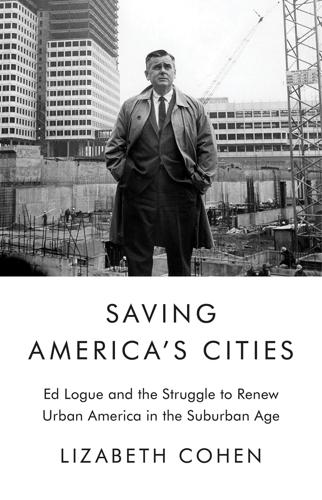
Saving America's Cities: Ed Logue and the Struggle to Renew Urban America in the Suburban Age
by
Lizabeth Cohen
Published 30 Sep 2019
The lone African American was Denis Blackett, a project designer at the BRA. Others included Gordon Fellman, an assistant professor of sociology at Brandeis; Robert Goodman, an assistant professor of architecture at MIT; Chester Hartman, an assistant professor of city planning at Harvard; Daniel Klubock, a young activist lawyer; James Morey, the full-time UPA executive director, who, as a psychologist and a systems analyst, had recently left the defense industry in disillusionment; Lisa Peattie, an anthropologist and associate professor of urban affairs and regional planning at MIT; and Fred Salvucci, a BRA transportation planner.60 Over the spring, summer, and fall of 1966, a fascinating, well-documented three-way struggle transpired between Logue’s BRA, the Madison Park community as represented by the LRCC, and UPA, with UPA carrying the torch for the LRCC with the BRA, while the LRCC’s mostly African American organizers and members grew increasingly distrustful of their advisers.
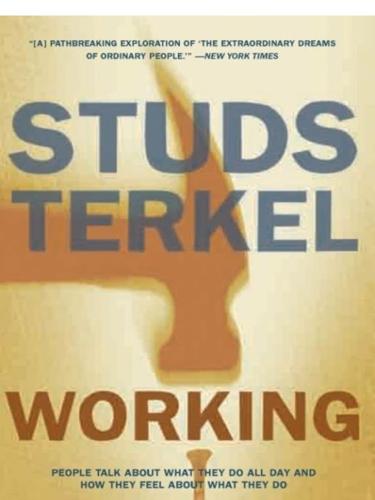
Working: People Talk About What They Do All Day and How They Feel About What They Do
by
Studs Terkel
Published 1 Jan 1974
As we walk in the restaurant, they’re looking at us. As we walk out, our pictures are taken again. Red Squad, Chicago Police Department.90 Because we represented the Young Patriots.91 that was at the time when they established the free medical clinic. The city was trying to close it down. They were keeping a file on the activist lawyers in the city. I walk back to the office and interview people. Calling finance companies, trying to find defenses on contracts where people have signed, not knowing what the hell they signed because they can’t read English. Their car gets repossessed, their wages are garnisheed . . . You can work four days straight, sixteen hours a day, and never feel tired.